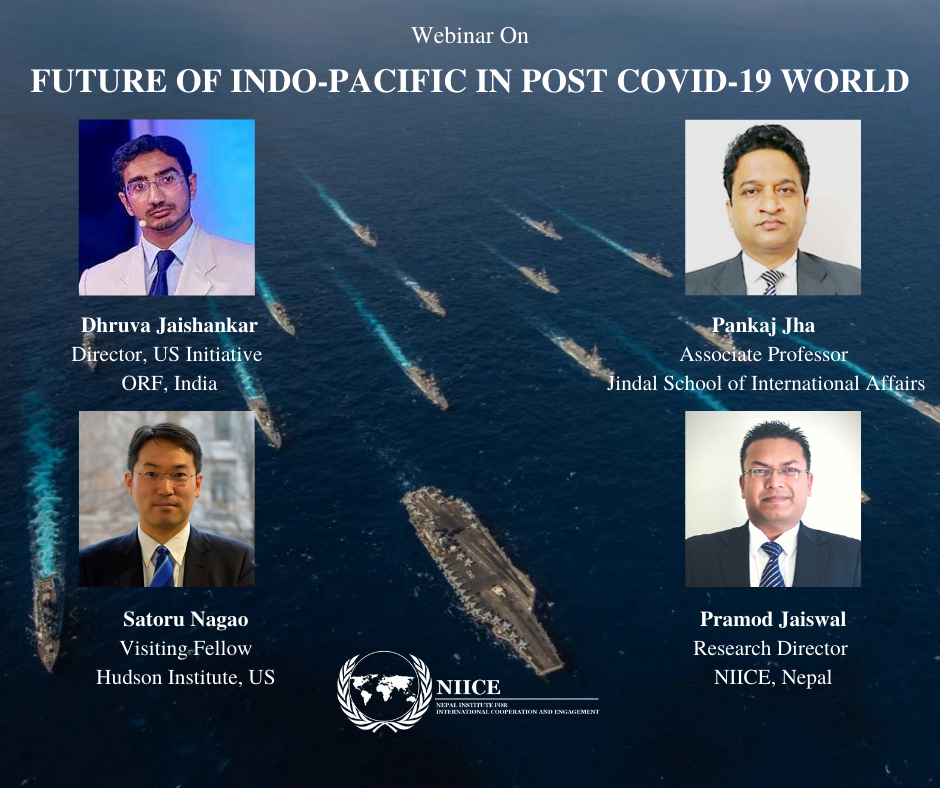KATHMANDU: Nepal, India and Japan should cooperate with US because ultimately the US and its alliance is going to confrontation with China and win over it, said Satoru Nagao, Japanese scholar who is Visiting Fellow of Hudson Institute, US.
He said that Japan, India and the US should have a stronger defense cooperation in days to come.
Speaking on “The US-China Confrontation after the COVID-19 Crisis: How Nepal, India and Japan should Respond?”, at a webinar organized by Nepal Institute for International Cooperation and Engagement (NIICE), he said that while the world is struggling to fight against the COVID-19, the global pandemic, China has ramped up its military and its paramilitary activities throughout the Indo-Pacific region.
He also suggested that it is the best time for the US to confront and exert pressure on China.
Similarly, another eminent panel, Dhruva Jaishankar, Director of the US Initiative at Observer Research Foundation stated that there might be foreseeable instability in economic relationship between countries, problem in sustainability of financing mechanisms and their transparency.
He emphasized that most important factors that would be deciding relations in Indo-Pacific is how countries will maintain their territorial integrity and respect others’.
He further added that other international norms are expected to change or erode too like Internet governance, usage of the Arctic and Antarctic regions.
Pankaj Jha, Associate Professor at Jindal School of International Affairs, India said that most of the countries would move in three ways in post COVID-19 world.
Firstly, they will define the blueprint of Indo-Pacific and then either punish or isolate China and will work on fighting economic recession after the pandemic.
He also emphasized that Coronavirus had tremendous effect on political and economic structure of whole of Asia and Indo-pacific.
China and the US have made their economic, social and political narratives against each other and the narrative that dominates will decide what view rest of the countries subscribe to.









Comment